#a.d. 1
Text
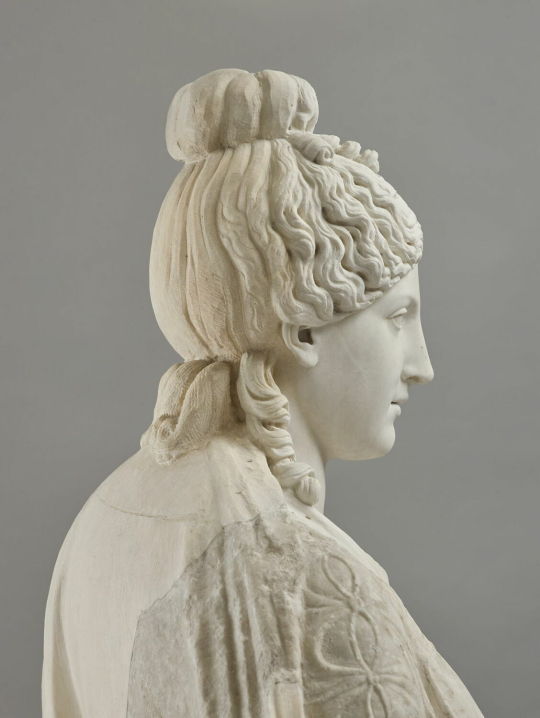
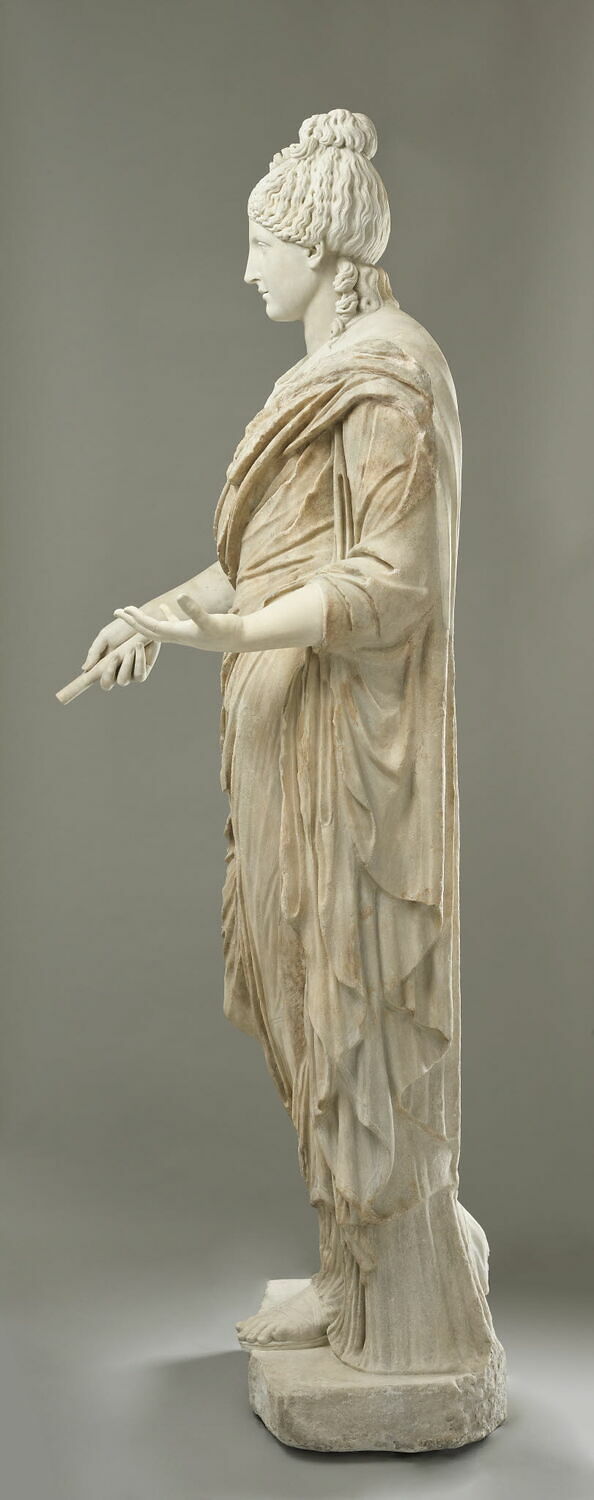
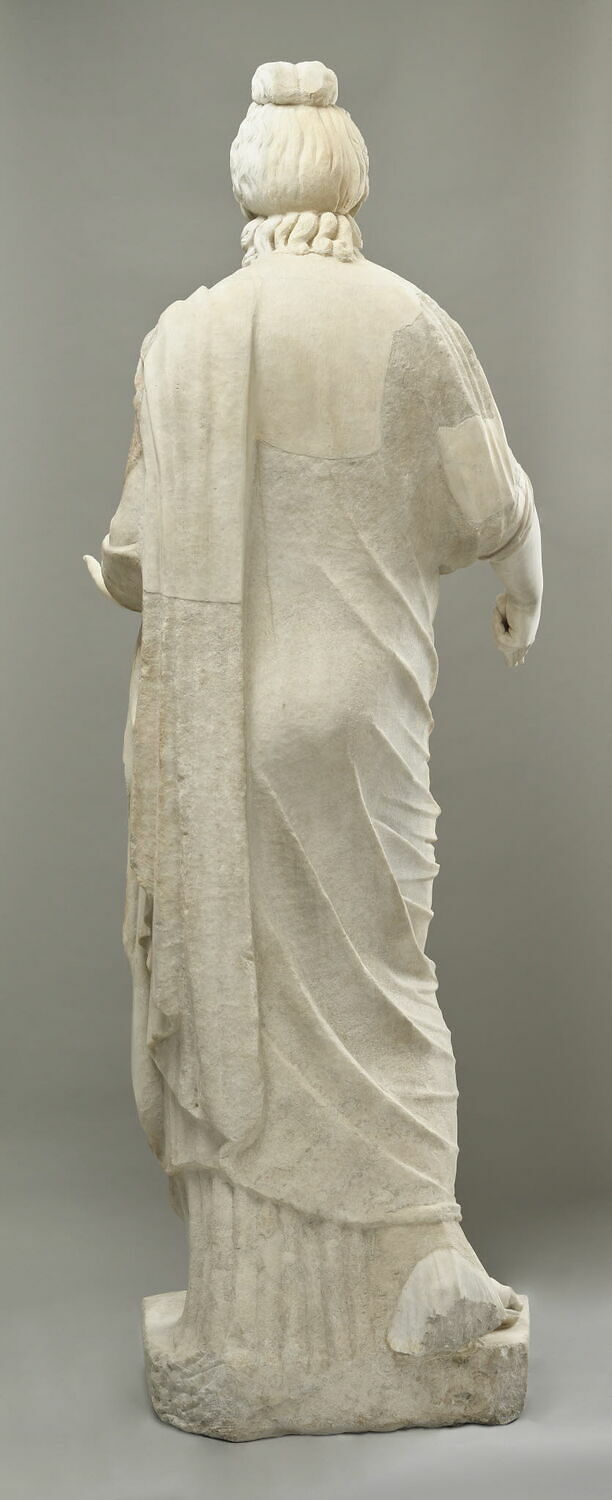



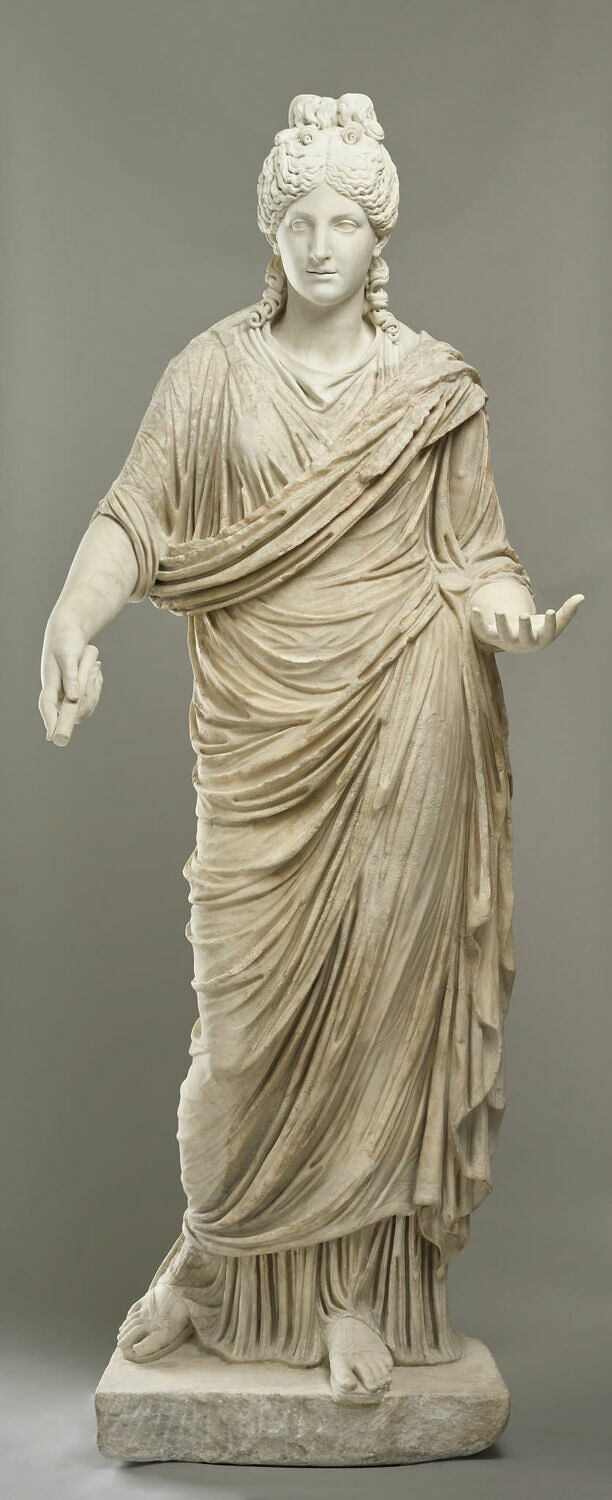
~ Chairopoleia.
Date: A.D. 1-50
Place of origin: Thera, Santorini
Medium: Marble
#ancient#ancient art#history#museum#archeology#ancient sculpture#ancient history#archaeology#marble#greek#greece#thera#Santorini#1st century#ancient greek#Chairopol#Chairopoleia#a.d. 1#a.d. 50
932 notes
·
View notes
Text
Breaking Dawn 19- Hypnagogia
Chapter Summary:
Three things that are in this chapter:
Popsicles
Hand-holding
Chainsaws
-
NEW CHAPTER
REBLOG REBLOG
COMMENT COMMENT
#a.d.'s fics i suppose#a.d.'s fics i suppose.#monster au fic#NO EDITING THIS TIME HAVE FUN!!!!!!!!!!!!!!1
150 notes
·
View notes
Text
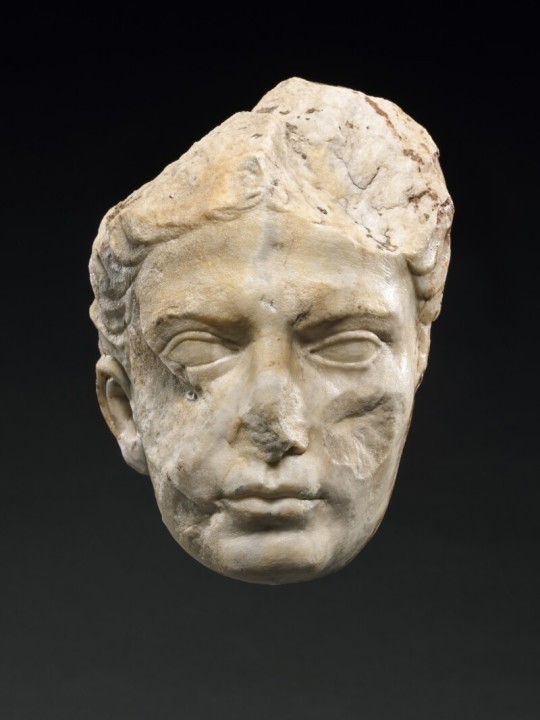
A FRAGMENTARY ROMAN MARBLE PORTRAIT HEAD OF A WOMAN
LATE AUGUSTAN/TIBERIAN, CIRCA A.D. 1-37
With eyes drilled in the inner corners, her hair arranged in overlapping curved locks over the temples.
Height 23 cm.
#A FRAGMENTARY ROMAN MARBLE PORTRAIT HEAD OF A WOMAN#LATE AUGUSTAN/TIBERIAN#CIRCA A.D. 1-37#marble#marble statue#marble sculpture#roman marble sculpture#ancient artifacts#archeology#archeolgst#history#history news#ancient history#ancient culture#ancient civilizations#ancient rome#roman history#roman empire#roman art
54 notes
·
View notes
Photo
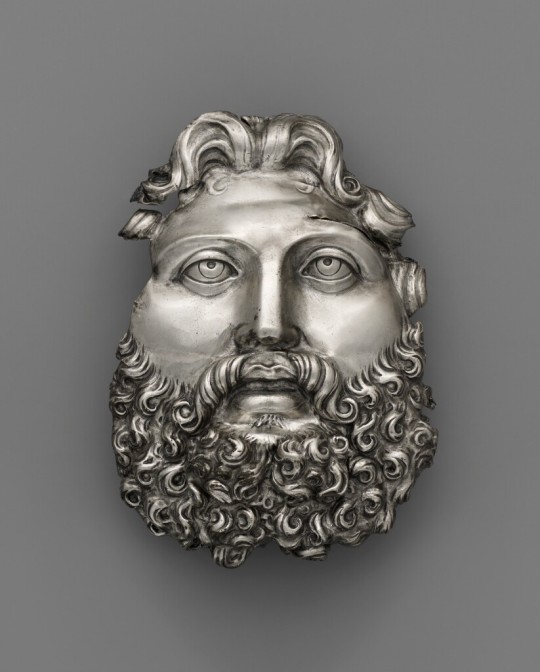
Silver relief of Jupiter (Roman, A.D. 1–150).
The J. Paul Getty Museum. Open Content Program.
241 notes
·
View notes
Text
Recorded Live on Zambian Radio: 2024 A.D. - In The Year Of The Lord (229) - January 20 2024
Play on other Podcast Apps
We were blessed to teach live on Radio Chimwemwe in Ndola, Zambia this past week. A New Year begins: 2024 A.D.
A.D. in medieval Latin stands for ‘Anno Domini’ and means “In the Year Of The Lord”. We take a look at Psalm 91, and various other scriptures and ask ourselves, will we decide to make 2024 The Year of The Lord in our personal lives?
This program covers the…

View On WordPress
#1 Cor 3:18-20#1 john 1:9#2024#2024 A.D.#2024 AD#Anno#Anno Domini#christ#Domini#father#god#Jesus#new year#Proverbs 3:5-6#Psalm 119:105#Psalm 62:1#Psalm 91:1#Romans 12:9-10#yahweh#yeshua
0 notes
Text
It's Moon Landing Day!
On this, Tumblr's first celebration of Moon Landing Day, my insomnia and I bring you this humble, barely researched post of fast facts!
On July 20, 1969 at 4:17 p.m. EDT Apollo 11 becomes the first manned spacecraft to land on the moon.
Neil Armstrong (commander), Buzz Aldrin (lunar module pilot) and Michael Collins (command module pilot) were the crew.
The Apollo 11 spacecraft consisted of the command module, Columbia, and the lunar module, Eagle.
The crew traveled 240,000 miles from the Earth to the moon in 76 hours.

1:47 p.m. EDT Armstrong and Aldrin, in the lunar module Eagle, separate from the command module. Collins remains onboard the Columbia orbiting the moon.
4:17 p.m. EDT - The Eagle lands.
4:18 p.m. EDT - “Houston, Tranquility Base here. The Eagle has landed,” Armstrong reports. When the lunar module lands on the moon’s surface at the Sea of Tranquility, it has less than 40 seconds of fuel left.
10:56 p.m. EDT - Armstrong says, “That’s one small step for man, one giant leap for mankind,” as he becomes the first human to set foot on the moon.
11:15 p.m. EDT (approx.) - Buzz Aldrin joins Armstrong on the moon. The men read from a plaque signed by the three crew members and the president, “Here men from the planet Earth first set foot upon the Moon, July 1969 A.D. We came in peace for all mankind.”
11:48 p.m. EDT - President Nixon speaks to Armstrong and Aldrin via radio from the Oval Office, “(it) certainly has to be the most historic telephone call ever made.” They speak for two minutes and the call is televised on both ends.
Armstrong and Aldrin spend over two hours collecting moon rock samples and data, and spend the night on board the Eagle.
Text from CNN, image from USA Today
#moon landing day#of course I'm celebrating#armstrong meant to say#one small step for A man#happy moon landing day to all who celebrate
909 notes
·
View notes
Text
Musta been confusing in B.C. 1 when people were like Happy New Year everybody give it up for 1. And then everybody was like wait a minute didnt we just have 1. And then a few years later in A.D. 4 when they'd be like 3 was 7 years ago now, feel old yet?
452 notes
·
View notes
Text
Paradise Lost: How John Milton's 1667 work influenced "Hazbin Hotel"
I've been thinking about why the "fruit of knowledge" in Hazbin Hotel is depicted as an apple, as opposed to another fruit that would've been more accurate to the Middle East during the Fall of Man, as well as how Paradise Lost by John Milton (1667) influenced the show.
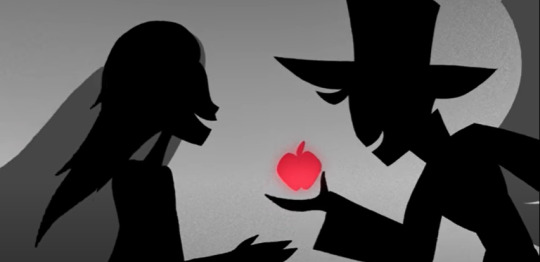
Per one source:
"Because the Hebrew Bible describes the forbidden fruit only as 'peri', the term for general fruit, no one knows [what exactly type of fruit it was]. It could be a fruit that doesn't exist anymore. Historians have speculated it may have been any one of these fruits: pomegranate, mango, fig, grapes, etrog or citron, carob, pear, quince, or mushroom."
Per Wikipedia:
"The pseudepigraphic Book of Enoch describes the tree of knowledge: 'It was like a species of the Tamarind tree, bearing fruit which resembled grapes extremely fine; and its fragrance extended to a considerable distance. I exclaimed, How beautiful is this tree, and how delightful is its appearance!' (1 Enoch 31:4)."
In Jewish and Islamic traditions, the "fruit of knowledge" is commonly identified with grapes. The Zohar explains that Noah attempted (but failed) to rectify the sin of Adam by using grape wine for holy purposes. Today, the "Noah grape" is still used to make white wine.

Furthermore:
"The association of the pomegranate with knowledge of the underworld as provided in the Ancient Greek legend of Hades and Persephone may also have given rise to an association with knowledge of the 'otherworld', tying-in with knowledge that is forbidden to mortals. It is also believed Hades offered Persephone a pomegranate to force her to stay with him in the underworld for 6 months of the year. Hades is the Greek god of the underworld, and the Bible states that whoever eats the forbidden fruit shall die."
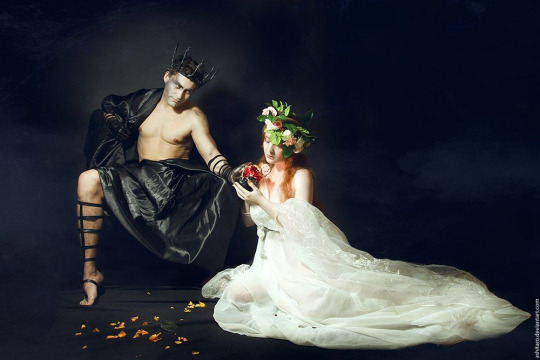
So, how then did the apple become the foremost symbol of the "fruit of knowledge"? You can partly thank Paradise Lost by English poet John Milton, a work which the lore of Hazbin Hotel is based off of.
Milton published the book in 1667, a time when the hedonistic Restoration era was in full swing. The exiled King Charles II was restored to the throne as King of England in 1660, and was a party animal, with dozens of mistresses, and nicknamed both the "playboy prince" and "Old Rowley", the latter after his favorite lustful stallion.
However, the association of the "fruit of knowledge" began with a Latin pun long before Milton immortalized the association in Paradise Lost. Per the linked article above by Nina Martyris for NPR:
"In order to explain, we have to go all the way back to the fourth century A.D., when Pope Damasus ordered his leading scholar of scripture, Jerome, to translate the Hebrew Bible into Latin. Jerome's path-breaking, 15-year project, which resulted in the canonical 'Vulgate', used the Latin spoken by the common man. As it turned out, the Latin words for evil and apple are the same: 'malus'.
[...] When Jerome was translating the 'Tree of the Knowledge of Good and Evil', the word 'malus' snaked in. A brilliant but controversial theologian, Jerome was known for his hot temper, but he obviously also had a rather cool sense of humor.
'Jerome had several options,' says Robert Appelbaum, a professor of English literature at Sweden's Uppsala University. 'But he hit upon the idea of translating 'peri' as 'malus', which in Latin has two very different meanings. As an adjective, 'malus' means 'bad' or 'evil'. As a noun it seems to mean an apple, in our own sense of the word, coming from the very common tree now known officially as the 'Malus pumila'. So Jerome came up with a very good pun.'
The story doesn't end there. 'To complicate things even more,' says Appelbaum, 'the word 'malus' in Jerome's time, and for a long time after, could refer to any fleshy seed-bearing fruit. A pear was a kind of 'malus'. So was the fig, the peach, and so forth.'
Which explains why Michelangelo's Sistine Chapel fresco features a serpent coiled around a fig tree. But the apple began to dominate Fall artworks in Europe after the German artist Albrecht Dürer's famous 1504 engraving depicted the First Couple counterpoised beside an apple tree. It became a template for future artists such as Lucas Cranach the Elder, whose luminous Adam and Eve painting is hung with apples that glow like rubies.
Milton, then, was only following cultural tradition. But he was a renowned Cambridge intellectual fluent in Latin, Greek and Hebrew, who served as secretary for foreign tongues to Oliver Cromwell during the Commonwealth. If anyone was aware of the 'malus' pun, it would be him, and yet he chose to run it with it. Why?
Appelbaum says that Milton's use of the term 'apple' was ambiguous. 'Even in Milton's time the word had two meanings: either what was our common apple, or, again, any fleshy seed-bearing fruit. Milton probably had in mind an ambiguously named object with a variety of connotations as well as denotations, most but not all of them associating the idea of the apple with a kind of innocence, though also with a kind of intoxication, since hard apple cider was a common English drink.'
It was only later readers of Milton, says Appelbaum, who thought of 'apple' as 'apple', and not any seed-bearing fruit. For them, the forbidden fruit became synonymous with the 'malus pumila'. As a widely read canonical work, 'Paradise Lost' was influential in cementing the role of apple in the Fall of Man story."
To tie this back into John Milton's relationship with King Charles II of England, as mentioned, Milton originally served Oliver Cromwell, Lord Protector of England, and the English Commonwealth, which was formed with the overthrow and execution of King Charles I on 30 January 1649, following the bloody English Civil War (1642 – 1651).
The King's two sons - the newly-christened King Charles II, the elder, and James, Duke of York (King James II), the younger - fled into exile on the European continent. However, with the death of Oliver Cromwell on 3 September 1658 came the 2-year-long dissolution of the English Commonwealth, and the restoration of the monarchy.
As for Milton himself, we can look to an article by Bill Potter.
Milton, born on 9 December 1608, was around 51-52 years old when King Charles II was restored to the throne. He attended Christ's Church, Cambridge in his youth, and mastered at least six languages, as well as history and philosophy; making him, perhaps, the most knowledgeable poet in history. He spent more than a year travelling across Europe, conversing with and learning from intellectuals, linguists, poets, and artists, including the famous Galileo Galilei.
However, Milton was a controversial figure of his time, being unafraid to criticize institutions of authority; arguing that "divorce was Biblical", for which he was routinely condemned; joining the Puritans; penning the Areopagitica, a treatise on liberty in favor of Parliament and the Roundhead rebels, during the reign of King Charles I, arguing that the King must be held accountable by the people; and agreed with and justified the murder of King Charles I, for which Parliament hired him in 1649 as a propagandist and correspondence secretary to foreign powers, on account of his fiery manifestos against "the man".
The collapse of the Commonwealth with the death of Oliver Cromwell in 1658 did not deter Milton from continued political writing against the monarchy and the new public sentiment that brought about its Restoration under King Charles II in 1660. On the contrary, Milton - now totally blind, having lost his eyesight by the age of 44 in 1652, a decade earlier - began writing Paradise Lost in 1661, and spent the next six years dictating the work to transcribers.
A supporter of regicide, Milton was also forced into exile himself, and faked his own death, as Charles refused to pardon - and sought to execute - any of those directly involved with his father's murder. Milton's friends held a mock funeral for Milton on 27 August 1660, just months after the coronation of King Charles II on 23 April 1660.
King Charles II commented that he "applauded his [Milton's] policy in escaping the punishment of death [execution for treason] by a reasonable show of dying", but insisted on a public spectacle nonetheless by having Milton's writings burned by the public hangman.
After eventually obtaining a general pardon from King Charles II, Milton was imprisoned, and released, likely due to political friends in high places. He died, aged 64, in 1674. His theological views were sometimes considered heterodox by the best Puritans, and his political views came close to getting him executed on several occasions. His poetry, however, has endured as some of the greatest works in the English language, especially Paradise Lost; much of his greatest work was written during his 22 years of complete blindness.
One of the main factors in King Charles II deciding to grant a pardon to Milton was, ironically, Paradise Lost. While originally written by Milton as a scathing criticism of King Charles II and the monarchy - depicting Lucifer Morningstar as a sympathetic rebel against God, with King Charles II claiming that is right to rule came from "divine ordainment" - Charles II enjoyed the work, and authorized its publication on 20 August 1667. We know this because a 1668 copy of Paradise Lost in royal bindings by Samuel Mearne, bound lovingly in a fine red leather made of goat skins tanned with sumac, and stamped in gold with the royal cypher of King Charles II, was found. The endpapers bore a watermark with the royal arms of Charles II.
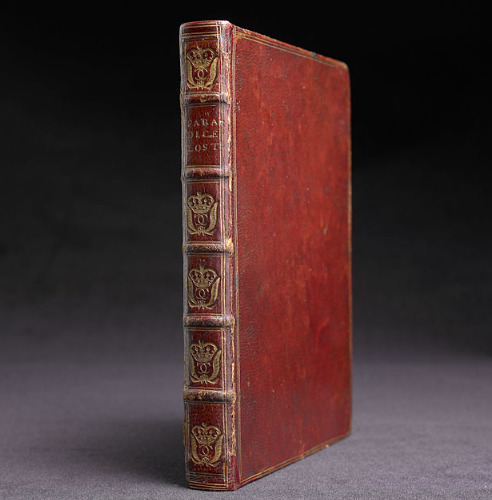
Per one Miltonian scholar: "The most single important event in Milton's life was the event against which he struggled most: the Restoration of Charles II, [and his relationship with the King]. Had it not come, we might have never had Paradise Lost...certainly, we should never have had [it] in [its] present power and significance."
Milton followed up Paradise Lost with Paradise Regained in 1671, three years before his death, with advice for King Charles II, urging the hedonistic Charles to "reign over himself and his passions":
"For therein stands the office of a King, His Honour, Vertue, Merit and chief Praise, That for the Publick all this weight he bears. Yet he who reigns within himself, and rules Passions, Desires, and Fears, is more a King; Which every wise and vertuous man attains: And who attains not, ill aspires to rule Cities of men, or head-strong Multitudes, Subject himself to Anarchy within, Or lawless passions in him which he serves." - John Milton, Paradise Regained, Book II, lines 463-472
To summarize: "If we must have a King back again, my Lord, please try to be a good man, unlike your father, who fell to his pride, [which was also the downfall of Lucifer]."
To quote another source: "Though the passage begins by noting that the office of a King is to bear the weight of public concerns, it is the control of one's private concerns that truly set a King apart as a virtuous character. Indeed, so important is self-command that any wise or virtuous man who attains it is like a king; any king who does not practice [self-command] is nothing more than a mere subject, ruled by anarchy and lawlessness."
Milton's words, too, echo a work written by Charles' grandfather, King James VI/I of Scotland and England: Basilikon Doron ("Royal Gift").
Per Wikipedia:
"'Basilikon Doron' (Βασιλικὸν Δῶρον) means 'royal gift' in Ancient Greek, and was written in the form of a private letter to James' eldest son, Henry, Duke of Rothesay (1594–1612). After Henry's death, James gave it to his second son, Charles, born 1600, later King Charles I. Seven copies were printed in Edinburgh in 1599, and it was republished in London in 1603, when it sold in the thousands.
This document is separated into three books, serving as general guidelines to follow to be an efficient monarch. The first describes a king's duty towards God as a Christian. The second focuses on the roles and responsibilities in office. The third concerns proper behaviour in daily life.
As the first part is concerned with being a good Christian, James instructed his son to love and respect God as well as to fear Him. Furthermore, it is essential to carefully study the Scripture (the Bible) and especially specific books in both the Old and New Testaments. Lastly, he must pray often and always be thankful for what God has given him.
In the second book, James encouraged his son to be a good king, as opposed to a tyrant, by establishing and executing laws as well as governing with justice and equality, such as by boosting the economy. The final portion of the Basilikon Doron focuses on the daily life of a monarch.
All of these guidelines composed an underlying code of conduct to be followed by all monarchs and heads of state to rule and govern efficiently. James assembled these directions as a result of his own experience and upbringing. He, therefore, offered the 'Basilikon Doron' ('Royal Gift') to his son, with the hope of rendering him a capable ruler, and perhaps to pass it down to future generations.
Overall, it repeats the argument for the divine right of kings, as set out in 'The True Law of Free Monarchies', which was also written by James. It warns against 'Papists' (Roman Catholics) and derides Puritans, in keeping with his philosophy of following a 'middle path', which is also reflected in the preface to the 1611 King James Bible. It also advocates removing the Apocrypha from the Bible."
King James VI/I further instructed his son and grandson:
"A good monarch must be well acquainted with his subjects, and so it would be wise to visit each of the kingdoms every three years."
"During war or armed conflict, he should choose old-but-good captains to lead an army of young and agile soldiers."
"In the court and the household, [a royal] should carefully select loyal gentlemen and servants to surround him. When the time came to choose a wife, it would be best if she were of the same religion and had a generous estate. However, she must not meddle with governmental politics, but perform her domestic duties."
"As for inheritance, to ensure stability, the kingdom should be left to the eldest son, not divided among all children."
"Lastly, it is most important...that [a royal] would know well his own craft...to properly govern over his subjects. To do so, [one] must study the laws of the kingdom, and actively participate in the council. Furthermore, [one] must be acquainted with mathematics for military purposes, and world history for foreign policy."
"[A royal] must also not drink and sleep excessively. His wardrobe should always be clean and proper, and he must never let his hair and nails grow long. In his writing and speech, he should use honest and plain language."
King James VI/I further supplemented Basilikon Doron with a written treatise titled The True Law of Free Monarchies: Or, The Reciprocal and Mutual Duty Between a Free King and His Natural Subjects.
"It is believed King James VI/I wrote the tract to set forth his idea of absolutist monarchism in clear contrast to the contractarian views espoused by, among others, James' tutor George Buchanan (in 'De Jure Regni apud Scotos'), [which] held the idea that monarchs rule in accordance of some sort of social contract with their people. James saw the divine right of kings as an extension of the apostolic succession, as both not being subjected by humanly laws."
Milton's own Areopagitica was a follow-up on De Jure Regni apid Scotos by George Buchanan, and also to The True Law of Free Monarchies, as well as the idea of the "divine right of kings". It takes its title in part from Areopagitikos (Greek: Ἀρεοπαγιτικός), a speech written by Athenian orator Isocrates in the 4th century BC.
Most importantly, Milton also wrote on the concept of free will: "Milton's ideas were ahead of his time in the sense that he anticipated the arguments of later advocates of freedom of the press by relating the concept of free will, and choice to individual expression and right."
The concept of free will, too, was a major topic explored in Paradise Lost. Per one source: "In 'Paradise Lost', Milton argues that though God foresaw the Fall of Man, he still didn't influence Adam and Eve's free will. [...] God specifically says that he gives his creatures the option to serve or disobey, as he wants obedience that is freely given [or chosen], not forced. Some critics have claimed that the God of the poem undercuts his own arguments; however, Milton did not believe in the Calvinistic idea of 'predestination' (that God has already decided who is going to Hell and who to Heaven), but he often comes close to describing a Calvinistic God. God purposefully lets Lucifer (Satan) escape Hell, and sneak past Uriel into the Garden of Eden, and basically orchestrates the whole situation so that humanity can be easily ruined by a single disobedient act. In describing the Fall of Man before it happens, God already predicts how he will remedy it, and give greater glory to himself by sending his Son [Jesus Christ] to die, and restore the order of Heaven."
In Hazbin Hotel, Adam also describes the Calvinistic idea of 'predestination', and that "the rules are black and white":

However, "This possible predestination leads to the theory of the 'fortunate fall', which is based on Adam's delight at learning of the eventual coming of the Messiah [from his bloodline]. This idea says that God allowed the Fall of Man, so that he could bring good out of it, possibly more good than would have occurred without the Fall, and be able to show his love and power through the incarnation of his Son. In this way, the free will of Adam and Eve (and Lucifer/Satan) remains basically free, but still fits into God's overarching plan."
However, there is one major flaw with this, and that is that we don't know if Jesus Christ exists within the Hazbin Hotel universe or not. Yet Charlie Morningstar, the daughter of Lucifer Morningstar and Lilith, and the "Princess of Hell", is depicted as a savior-esque figure within the show who, like God in Paradise Lost, encourages lowly sinners to choose obedience to God out of their own free will. More interestingly, Charlie does not come from Adam's bloodline; yet, while Lucifer decries 'free will', Charlie supports 'free will' instead.
Perhaps is is merely because Charlie, being the daughter of Lucifer and Lilith, claims to want to fulfill Lilith's "dream" of humanity being empowered in Hell ("The mind is its own place, it can make Heaven out of Hell, or Hell out of Heaven" - Lucifer, Paradise Lost); however, I think it also stems from Charlie having a genuine belief that 'free will', and people choosing to do good instead of evil, is "good" and "Godly".
True to Paradise Lost, this is also in fulfillment of God's plan; and, according to one fanfiction, why God allowed Charlie to be born to Lucifer and Lilith, so that sinners may be redeemed through Charlie.
For more on differing interpretations of 'free will', I suggest reading: "Free Will and the Diminishing Importance of God's Will: A Study of Paradise Lost and Supernatural" by Kimberly Batchelor (2016)
Excerpt: "'Paradise Lost' –and Milton’s purpose for writing the poem— is rooted deeply in postreformation Arminianism and this is apparent in its employment of free will. Chapter 1 argues that Milton turns to free will as a tool to justify the actions of God. Freedom of choice is God-given, and sets up a morality in which right and wrong are dictated by God. Chapter 2 shows that in 'Supernatural', free will is not given by a higher power; and, in fact, free choice functions as an act of defiance against God's will."
This raises the question: Is 'free will' given by God, using Lucifer as his vessel, in Hazbin Hotel, as in Paradise Lost? Or is 'free will' not given by a higher power; and, in fact, an act of defiance against God?
This brings us back around to our first question: Why is an apple, or 'malus', used to depict the "fruit of knowledge", especially if 'malus' means 'bad or evil', whereas Milton depicts 'free will' as God-given?
Well, for one, Lucifer still chooses to associate himself with apple symbolism and imagery, despite being skeptical of free will:
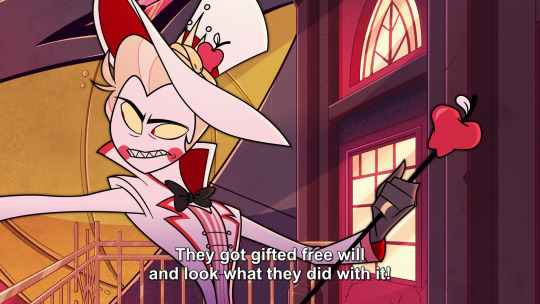
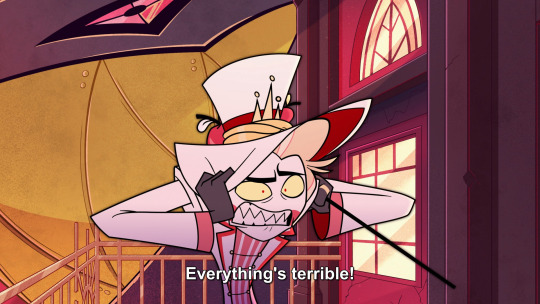
Based on the introduction to Episode 1, Charlie also views 'free will' as a gift (Miltonian), whereas Lucifer appears to view it as a curse.
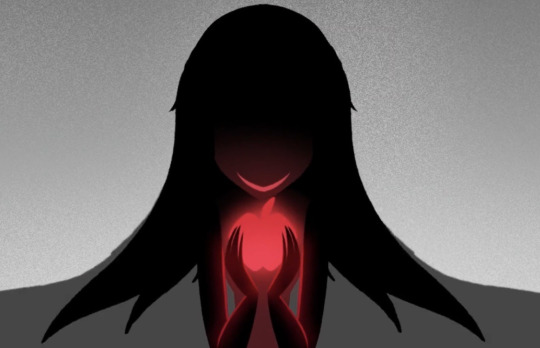
However, Charlie also notes that it was through the 'gift' of free will that the "root of all evil" entered the world, for if mankind could choose to be good, then they could also choose to be evil ('malus').
John Milton states in Paradise Lost: "Of Man's First Disobedience, and the Fruit Of that Forbidden Tree [malus], whose mortal taste Brought Death (evil, malus) into the World, and all our woe."
Thus, the use of an apple specifically is likely a tie-in to what others have been speculating about a character that series creator Vivienne Medrano (Vivziepop) alluded to a while back: "The Root of All Evil".
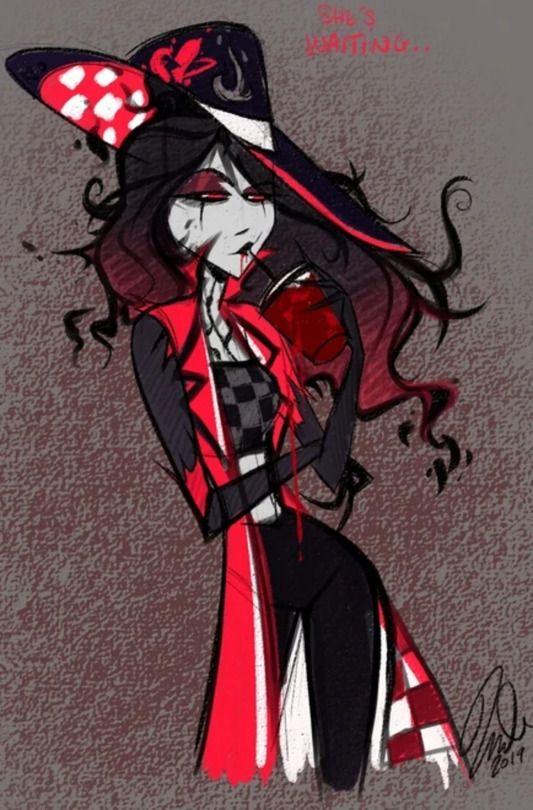
However, "Roo" itself is depicted as possessing the body of a human woman, presumably Eve, the first one to eat the "fruit of knowledge":
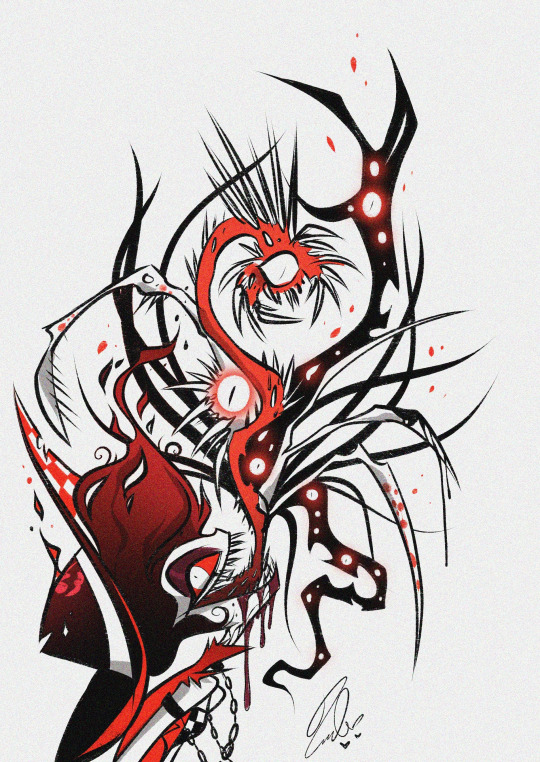
Thus, we can discern that "Malus" likely refers to this character. (Also see: "Maleficent", a name that also uses the root word "mal", "evil".) As for Roo's intentions, if Charlie is "good" - and, if, in fact, Alastor was sent by "Roo" (Eve) - then they may want for Alastor to work on their behalf to "corrupt" Charlie, or make sure the hotel never succeeds.
This is because demonic power is tied to human souls, and there are "millions of souls" in Hell, which likely fuels the great power of "Roo". The more souls there are in Hell, the more powerful "Roo" becomes. The Overlords also get their demonic power from "millions of souls".
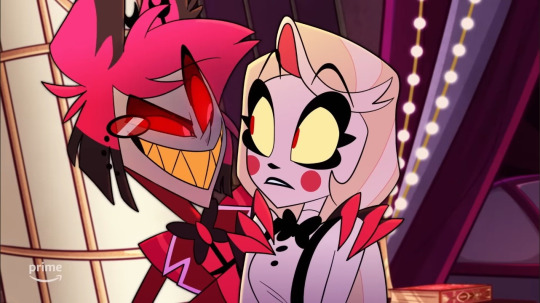
The deal between Eve and "Roo" might even be the first contract, or deal, between a human soul and a demonic entity; in exchange for 'free will', and the knowledge of good and evil, Eve allowed the "Root of All Evil" to inhabit her body, and to escape the void or prison it was confined to by Heaven (Hell?). (For one cannot be 'all-good' unless you attempt to 'eliminate' or 'ablate' evil; and, in Greek mythology, Zeus imprisoned the Titans in Tartarus for all of their evil deeds.)
Another possibility, brought up in an article by Gillian Osborne, is that Lucifer sees the "fruit of knowledge" as an apple, but it may appear as different fruits to different people, depending on how they view it. This also fits with Lucifer and angels being able to easily shapeshift.
In Paradise Lost, only Lucifer describes the fruit as an "apple" (malus), as he associates malus with "bad, evil", while the narrator also describes the fruit as "a mix of different colors" and peach-like. This then begs the question: "Did the fruit of knowledge of good and evil become 'evil' because Eve harbored resentment towards Adam?"
Quote: "Lucifer (Satan) gives Eve yet another hint that this tree may be more complicated than he wishes her to believe: although elsewhere in Milton's poem Eden is heady with its own newness, sprouting spring flowers left and right, the tree of knowledge is already old: its trunk is 'mossie'. Nevertheless, Lucifer claims to wind himself around the tree 'soon'; the quickness of his reported arrival stands in contrast to the timescales required to cover a fruit tree with moss (PL 9.589). Placing Lucifer's winding body between these two timescales—an easeful present and the inhuman scale of natural history—Milton suggests that there is something dangerous in entangling the past with the present. Yet, 'Paradise Lost' also makes deep biblical history feel like present politics for its readers. When Adam and Eve wander out of Eden at the end of the poem, they famously make their way not only into an earthly paradise, but also into the present. Eden's mossy apple tree therefore represents the pitfalls of conflating nature and history, of seeing any action in human history—even Eve's eating of an apple—as natural, if by nature, we mean inevitability. For Milton, history, unlike nature, is directed by humans, progressive, and, like the reading of 'Paradise Lost', hard work. While trees may inevitably collect moss the longer they live, Adam and Eve's labors in the garden, and our labors of reading, require agency and effort. Milton's poem refuses mourning the loss of Eden, [and the perfection of Heaven], in favor of a perpetual, melancholic, recreation of paradise: a present perfecting."
To quote Twisted: The Untold Story of a Royal Vizier, which also draws inspiration from John Milton's Paradise Lost: "It's an unfortunate situation...but you do have a choice [i.e. free will]."
#hazbin hotel#hazbin hotel analysis#hazbin#hazbin analysis#hazbin hotel meta#hazbin meta#hazbin hotel theory#hazbin theory#deep thoughts#john milton#paradise lost#eve hazbin hotel#lucifer hazbin hotel#lucifer morningstar#adam hazbin hotel#lilith hazbin hotel#lilith morningstar#roo hazbin hotel#root of all evil
203 notes
·
View notes
Text
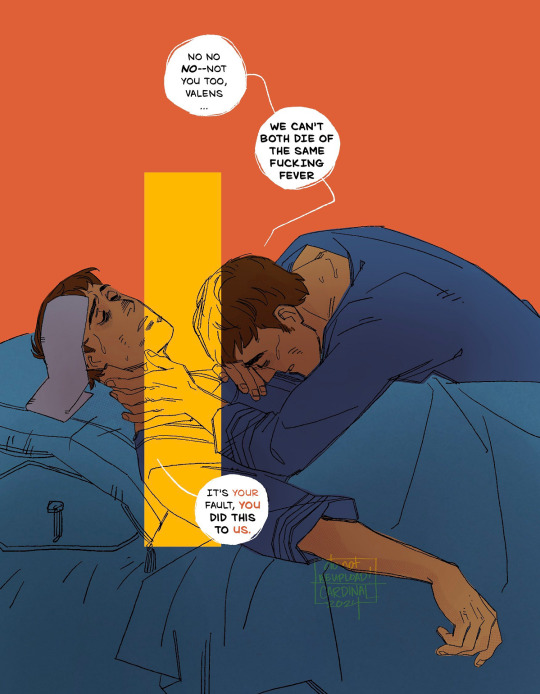

Then, on his arrival in Constantinople, after much counsel with himself, considering that he was already unequal to the amount of pressing business and believing that there was no room for delay, on the twenty-eighth of March he brought the aforesaid Valens into one of the suburbs and with the consent of all (for no one ventured to oppose) proclaimed him Augustus. Then he adorned him with the imperial insignia and put a diadem on his head, and brought him back in his own carriage, thus having indeed a lawful partner in his power, but, as the further course of our narrative will show, one who was as compliant as a subordinate.
No sooner were these arrangements perfected without disturbance than both emperors were seized with violent and lingering fevers--
AM 26.4.3-4
this was one of those illustrations that was originally supposed to be a 5 page comic until I realized I don't know anything about later roman empire architecture or visuals or art or anything, so we'll revisit that later. maybe
for right now though, these two are fascinating. we have two brothers acting as one body, even becoming ill in tandem with each other, it's giving This Throne Is Cursed. like, the last time I read about emperors coming down with life threatening illnesses, it was Caligula, and that moment in his biography marked a very specific tone shift. I spent the rest of the (first) time reading about Valens and Valentinian waiting for something comparable to Caligula's reign to happen lmao (Dio 59. 8. 1-2)
and since Caligula was already on the mind, I started thinking about Tiberius: I think he would've loved these two since he had a whole thing about twin-ification and brothers and etc etc etc. ofc, Rome is both a Mouth and a Tomb, so it's going to go badly for someone/everyone eventually, but honestly I think that Valentinian and Valens were the best we could've hoped for. like it could've been so much worse
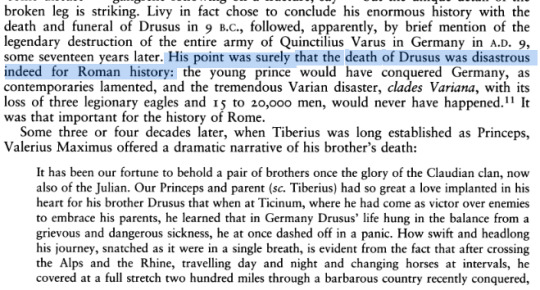









Tiberius and the Heavenly Twins, Edward Champlin
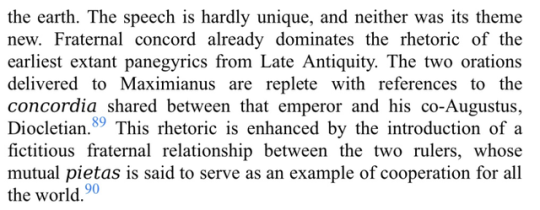
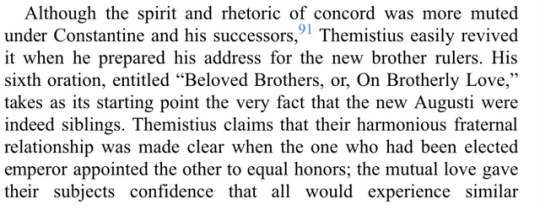

Failure of Empire: Valens and the Roman State in the Fourth Century A.D, Noel Lenski
⭐ I have a tip jar (ko-fi)!
⭐ and other places I’m at! bsky / pixiv / pillowfort /cohost / cara.app
#(drawing hearts around valens) hiiiiiiiiiiiiiiii#roman empire tag#drawing tag#every day i think about valentinian bringing his brother into this and wondering how valens felt about it#especially since the over all arc is that he's constantly just trying to tread water managing everything from six different fronts#did you ever want things to go back to how they were!!!! did you dream of simpler times!!!!!! when it was just hard work and dirt#under your nails instead of the horrible scale of empire choking you out to the very end!!!!!!!!! did you hate your brother for it#im normal about valens. btw. (<<<said by a guy who made valens his icon on his main art blog)#anyway. (claps hands together) im going to go and write about bonifacio and mabini and lucan and crassus and the pharsalia#and mabini's writings on a failed revolution and bonifacio haunting the collective memory#i gotta condense it down to a thousand words. ideally. we are rambling around at around 2k and its unwieldy#valens#valentinian I#later Roman Empire tag
153 notes
·
View notes
Text
Or: a pirate au
-
Before having the nerve to turn Roier in to the Navy, Spreen had this to say:
“I have no compassion for anybody.”
And then he had leaned forward and driven both the metaphorical and literal-actual-goddamn sword in between Roier’s ribs, and he had whispered right into Roier’s ringing ear:
“You’re lucky I’m not drowning you.”
And then he had kicked Roier off of his ship and onto the Navy’s, and he had sailed away, free to live and fight another day while leaving his best friend and first mate behind.
But, well. Joke’s on him! It’s been a year since that fateful day, but Roier is alive, and he’s free, and he’s got a gun and a sword and a ship of his own, and he’s gonna make Spreen pay.
But first? Breakfast, and fast. The Navy is after him, and he doesn’t want to get captured this early in the morning. (Foolish would never let it go!)
The Barcoier docks just after sunrise, and Roier is off the ship and speeding down the pier before Jaiden even has the anchor weighed.
The island is small, so small that it’s just a town and some farms and a couple of trees and a single lake smack in the center of it all. It’s so small it doesn’t even have a name, but that just makes it all the better for hiding from the Navy on; if it’s too small to be on a map, it’s too small for those idiots with the Navy to pick up on.
Maybe Roier is a bad pirate captain for leaving his crew to tie up the ship and run errands while he gets everyone breakfast and tries not to get arrested. But also:
(“We need a chef,” Jaiden complains. “No offense, dude, but your cooking sucks.”
Roier sniffs, hurt, but he doesn’t argue. He’s a better chef on land than he is on the water.
“I’ll get us a chef,” he promises. “But only if you-” He pokes Jaiden between the eyes with a corner of his hardtack biscuit. “-get us better food! Nobody can cook with this!”
He smacks his biscuit hard enough against the table to crack it [the table.] Jaiden rolls her eyes, but she shrugs.)
Where there’s a good breakfast, there’s a good chef. And, on an island as tiny as this one is, said chef might just be desperate enough for a change of pace that they’d agree to become a pirate. (It’s how Spreen got Roier, after all.)
How hard can it be?
…Really hard, actually, especially now that the Federation and its Navy are starting to crack down extra hard on pirates. They’ve moved on from life imprisonment to public executions, and all because most of the pirates left on the seas have started to unionize under the guidance of the feared Captain Bad Halo.
But, who knows? Maybe today will be the day!
Maybe…
-
The town’s only restaurant is closed for renovations, but the town’s bakery is open, thank God.
The bakery, much like the town it’s based in, doesn’t have a name. It does, however, have a wooden sign hanging above the door with a donut painted on it. The donut’s center, rather than being a hole, is a bright yellow-irised eyeball. Freaky.
The door jingles like rusted keys as Roier enters. Someone swears from the back room; otherwise, the bakery is entirely empty.
“Coming!” Roier hears.
“No worries!” he responds. “Take your time!”
He doesn’t exactly have time for the baker to take, but he isn’t exactly going to get himself a chef by being rude, is he?
So Roier waits, and he takes the opportunity to look at the display cases by the front counter. Donuts, of course, some muffins. An… abnormal amount of meat pies. Sure? Why not! Every place has its specialties.
A few moments pass, during which Roier starts mentally counting how many of each item he’s gonna need, and then footsteps from the back and an apologetic, “Sorry, I’m just-”
The baker cuts himself off as Roier stands up and looks him over. He’s… handsome, okay. Okay. More importantly, he already looks more piratey than half of Roier’s crew: pierced ear, scar across the bridge of his nose, solid build. Hot.
“You’re a pirate,” the baker says, much calmer than most regular people would be. Good, he’s brave, pirates need to be brave.
Roier leans forward against the counter, propping himself up on his elbows. He smiles, head tilted juuuust so.
“Who, me?” he asks. He shakes his head. “Naaaah. I’m just a regular guy looking for breakfast, you know?”
The baker’s eyes trail over Roier’s head and shoulders like he’s memorizing him. Creepy, kinda. Hot, kinda.
Roier continues, “But I’ve never been here before, so… any recommendations?”
He winks. The baker’s eyes widen slightly, and then he smiles himself and leans himself against the counter, his arms just inches away from Roier’s.
“Well,” he says, “the donuts will last longer on a long trip, if that’s what you’re asking. Everything else has fresh ingredients in it.”
“Who says I’m going on a long trip?”
The baker rolls his eyes and pushes himself off the counter to start unloading donuts into a bag. “Please, nobody actually wants to stay in this shithole. I’m used to tourists.”
He has nice arms. Maybe he even knows how to use a sword already.
“Sooo… you want to leave, too?” Roier asks.
The baker shrugs. “Maybe someday.”
That isn’t a no…
So it’s basically a yes!
Roier beams. “What if today was your someday?”
The baker gives him a flat look. “I’m not a pirate.”
“Maybe I’m not, either. But I do need someone on my ship who knows how to cook, and you wanna get out of here.”
The last donut is dumped into the bag, and the baker ties the bag shut and plops it onto the counter. He leans over it with a raised eyebrow.
“I’m not a chef, either,” he says. “Shouldn’t you be hiring someone that can actually cook, Captain Roier?”
At Roier’s gasp, the baker nods his head towards the wall behind Roier. On it is a bulletin board with wanted posters for nearly every pirate on the seas, Roier included.
Whoops.
Whatever! The baker hasn’t called the authorities yet, so he’s fine.
Roier opens his mouth, ready to try his pitch again, but he’s rudely interrupted by a cannon ball sailing through the bakery’s front window and slamming into a cabinet full of flour.
The room explodes into white, sending both Roier and the baker reeling.
“Fuck!” Roier coughs. He fans the air in front of his face, blinking rapidly to get the flour off of his eyes.
The bakery’s door is slammed open by a heavy boot. Its owner, a Navy officer, follows it in with his sword drawn and pointed at… the baker.
“Hands in the air,” the officer sneers.
Roier looks at the officer. He looks at the baker.
The baker looks at him. The baker looks at the officer.
He raises his hands slowly, holding the donut bag with it for whatever reason.
He looks at Roier again, a small smile on his handsome, yet flour-dusted, face.
“Thank you for having me aboard, captain,” he says.
The officer just then seems to notice Roier, but the poor bastard is just a bit too late because, just as he’s turning around to slash at the very obvious pirate captain in the room, Cellbit chucks the donuts at the idiot’s head. The bag makes contact, and then it makes the officer stumble right into the pointy end of Roier’s sword.
What a shame.
Roier pulls his sword out of the guy’s stomach with a grimace, wiping the blood on the bakery’s shredded window curtains.
He turns to smile at the baker, then.
“Glad to have you aboard…”
“Cellbit,” the baker supplies.
Now, where has Roier heard that name before…?
Whatever! There’s time for that later.
For now, Roier has a ship to get to, and he has a chef to deliver to it.
#a.d.'s fics i suppose#a.d.'s fics i suppose.#spiderbit pirate au#that’s right I revamped it#based loosely off of 1 piece iykyk
195 notes
·
View notes
Text
tumblr posts i love to reference that aren't mine (part 2)!
i can't think of a better way to head into the new year then to continue a tradition i started last year sharing some positivity and promote some of my favorite creators on tumblr! i have linked just a few of many incredible posts regarding an assortment of topics and i hope to add more to a new post in the future but until then...
here are some great posts!
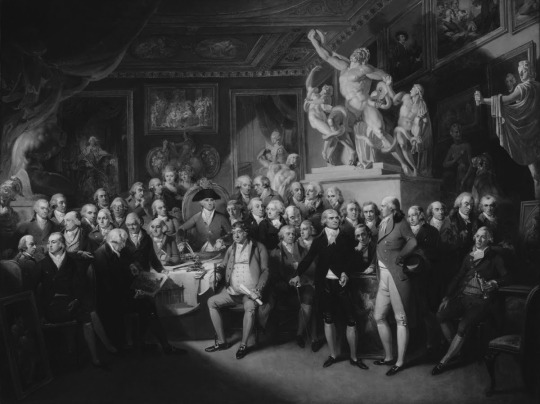
7h venus/mars @mysoullanguage
anuradha venus @notanastrologer
astro observations: career edition @sunkissedchld
astrocartography observations @astrosky33
beginner astro guide @astrostell
dating numerology @astrosky33
derivative astrology observations @astrosky33
different types of aspect lines in astrocartography maps @astrosky33
how you'll meet your spouse according to astrology @lilithgreye
lilith/asc midpoint @corvoidea
liminal spaces & 12hers @corvoidea
love encounters in your solar return: exploring the 7h @liliomme
a man's lilith & a woman's lilith @corvoidea
mars sign observations @vivmaek
mars sign observations part 2 @vivmaek
midpoint astrology: emotional healing @corvoidea
part 1 short astro observations @corvoidea
sensual midpoints @corvoidea
swati nakshatra @lychee-angelica
underrated beauty indicators @elysiansparadise
venus/pluto midpoint @corvoidea
visual manifestation of the nakshatras (part 1) @xycmp
your future spouse's job @lilithgreye

i appreciate all 2.7k of you! and i love all the friends i have made here who help me to both learn and grow. i wish you all the best - here is to health, happiness, love, and learning! talk more it 2024! CHEERS!
a.d. nox <3
#astrology#astro community#astro placements#astro chart#asteroid astrology#asteroid#natal chart#persona chart#astrology tumblr#cafe astrology#natal astrology#astrology chart#astro notes#astrology readings#astro observations#astrology blog#derivative astrology#midpoint astrology
240 notes
·
View notes
Text
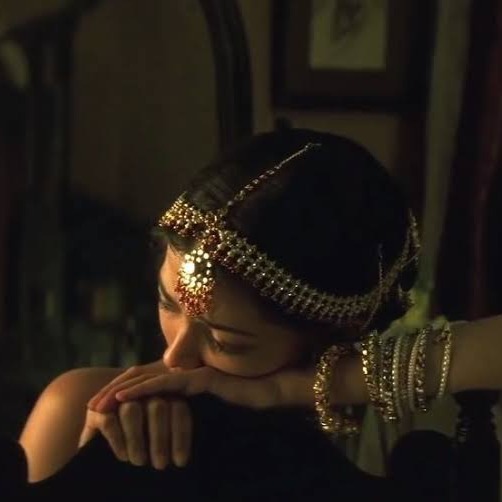



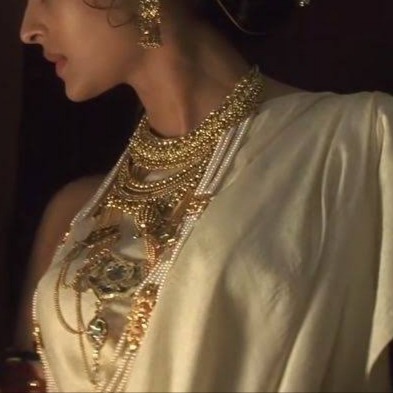



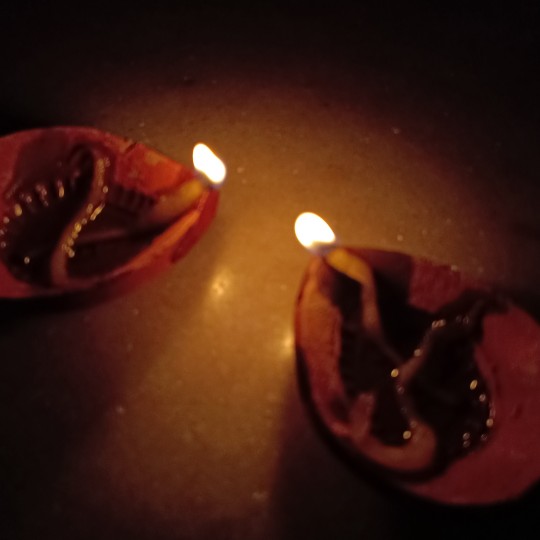
Khona was a poet and astronomer from Deulia village in Bengal, best known for Khonar Bochon, a series of couplets and short rhymes which imparts advice regarding agricultural and rural life. Born somewhere between 800-1200 A.D., Khona defied social and cultural norms of her time when women were rarely taught to read. Her husband Mihir was the son of the philosopher and astronomer Barahmihir, who was one of the navaratnas (nine gems) at the court of Chandragupta II. Khona lived in Chandragupta's court in Pataliputra for a time with her husband and father-in-law. According to legend, Chandragupta was so impressed with Khonar Bochon which benefited the farmers of his state that he named Khona the tenth gem of his court. Khonar Bochon remains relevant to the agricultural life of rural Bengal to the present day.
ষোল চাষে মূলা / তার অর্ধেক তুলা / তার অর্ধেক ধান / বিনা চাষে পান।
Translation: After 16 days of cultivation, radish cultivation in that land gives good yield. Cotton land requires 8 days of cultivation, paddy land after 4 days of cultivation gives good yield. Betel does not require cultivation.
1 / 2 / 3 / 4 / 5 / 6 / 7 / 8 / 9
#mb#khona#khonar bochon#khana#bengali academia#bangla tag#bangladesh#india#desi academia#dark academia#desi aesthetic#desi tag#desi tumblr#desiblr#bengali#indian history#ancient india#khonar bochor for anon#bengali literature
356 notes
·
View notes
Text
A Modern Understanding of Dionysus Hestios

Photo from a vineyard I worked on.
[ID: A close-up image of a Chardonnay white-wine grapevine with three clusters. The clusters are green with some red. Bright green leaves cover the top of the clusters, while below a black irrigation line is visible. The ground below is covered in woodchips, except for a single plant below the clusters].
HESTIOS IS A FUN YET OBSCURE EPITHET OF DIONYSUS. We can infer some of its context due to Zeus Hestios, that being a protector of the home and hearth. This epithet of Dionysus is a favourite of mine—for my home and hearth, he is a household deity as I am a viticulturist and winemaker. My life and livelihood is partially bound by grapevines as I currently work at an orchard that is establishing a vineyard and my responsibility is to make it happen.
The context of this epithet is little known beyond a passage in Pausanias’ iconic Description of Greece:
Pausanias, Description of Greece 1. 2. 5 (trans. Jones) (Greek travelogue C2nd A.D.) :
"From the gate to the Kerameikos [in Athens] there are porticoes . . . containing shrines of gods, and a gymnasium called that of Hermes. In it is the house of Poulytion . . . [which] in my time it was devoted to the worship of Dionysos. This Dionysos they call Melpomenos (Minstrel) [i.e. of Melpomene, the muse of tragedy], on the same principle as they call Apollon Mousegetes (Leader of the Muses) . . . After the precinct of Apollon is a building that contains earthen ware images, Amphiktyon, king of Athens, Dionysos Hestios (Feasting or Of the Hearth) and other gods. Here also is Pegasos of Eleutherai, who introduced the god [Dionysos] to the Athenians. Herein he was helped by the oracle at Delphoi, which called to mind that the god once dwelt in Athens in the days of Ikarios."
Dionysus Hestios is mentioned in Athens, along with his myth of his devotee Pegasos bringing his cult to the city. Other than references to Zeus Hestios, I have not found any more context for this epithet beyond protecting the home/hearth. Therefore, this aspect of him will be a contender for a strong upg basis.
In my times in wine, I’ve gathered my own gnosis of Dionysus Hestios. He is a protector of the hearth, but in my personal experience, the table wine aspect of Dionysus.
TABLE WINE IN THE MODERN WORLD
Table wine is named exactly for what it is, a wine that sits at your dinner table and a key part of a meal. Italy especially is famous for its cheap table wines, many of which I’ve had at my own tables and dinners. Most commercial wines these days are made to be drinkable on their own—while table wines are uncomfortable and harsh on the tongue. With food, they transform, turning these harsh and bitter wines into something truly enjoyable. It also makes the food taste better. For anyone unknowing, that’s why wine and food pairing is a thing. Unfortunately, the table wine market is slowly beginning to crumble—most modern wine drinkers enjoy more of a good tasting drink instead of a complement of one’s meal. If you have the chance, I recommend buying some and trying it in pairings—it’s a dying market, sadly, and one that has an ancient history behind it.
While table wines slowly fade, there is always a place for them in our lives. I myself have fond memories of a terribly bitter wine being served at my family’s table, and while I hated the taste, I’ve come to fall in love with them in recent years. Dionysus Hestios as a god of the home is a god of table wine, the happy smiles and festive memories of people having their Chianti with some steak or pasta. It’s the thrill of a good food pairing, a decanter, and the hundred years history of people making wine for the common folk instead of just for the aristocrats and their “noble” grapes.
Dionysus Hestios,
Hearth warmer, master
Of your craft, joy becoming
Protect our heart and wine,
Let us dance and joy,
Under your blessings
Of the woody grapevine.
References
DIONYSUS CULT 1 - Ancient Greek Religion. (n.d.). https://www.theoi.com/Cult/DionysosCult.html
#dragonis.txt#dionysus deity#dionysos deity#dionysus worship#dionysos worship#dionysus devotee#hellenic pagan#hellenic polytheism#hellenic paganism#paganism#witchcraft#witchblr#vinum
257 notes
·
View notes
Text
UTTU Part 1: The Magazine
Welcome back to A.D. doing mega lore posting because good god this will never get old. But anyways, this post will be about UTTU and not only about their magazine, but also about their Flash Gathering. (This also counts as my birthday gift for Sonetto since she likes being info-dumped, probably. Happy Birthday Sonetto!)
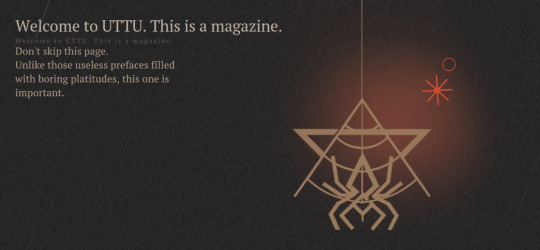
“Standing in the shadow, we tell all the stories which were once unknown, like a weaver in silence, or a moth light trap in the dark night.” - Pandora Wilson, UTTU Journalist
First, who even is UTTU?
UTTU Magazine is an arcanist magazine organization that releases stories about notable arcanists. According to Blonney, they are "the greatest fashion and arcanist information magazine." They operate globally as well as privately, going so far as to hide the physical identities of their reporters and their main headquarters.
There’s not a lot of things known about how UTTU works, but what we do have is information about their magazine and their Flash Gathering event, which we can start off from there. But first, what does the name mean?
The name ‘Uttu’ comes from the Mesopotamian goddess of the same name, one of Sumerian origin. She was associated with weaving (and spiders but the claim of Uttu being envisioned as a spider is limited).
They sell their magazines in the form of seasonal subscriptions, advising to only purchase the subscription and not much else. From there, they create the articles and send out monthly updates.
UTTU also hosts “Flash Gatherings” for the game’s events as a reading club, where the arcanists are invited to see the UTTU market situated in the area of where the in-game event takes place; they can read the Flash Journal and FLASH:FAME, obtain FAME cards from retails, and get rewards. I’ll get into this in Part 2.
First, we'll explore the magazine since there's so much questions surrounding them.
UTTU Magazine
Of course, the magazine is the main brand of the organization. The magazine has properties in which only arcanists are able to read it (speculation), and it has a scheduled self-update to release new articles/artworks.
The reason why we are able to see such a large amount of information is because from what can be told, Vertin is an avid collector of this media, even being titled “Top Collector” in the introduction of the Green Lake Flash Gathering.
Anyway, the magazine has a very interesting way of how it works, and they even have their own reading guide, including instructions of how to manage the magazine and activate the self-update.
Reader’s Guide and Self-Updating system
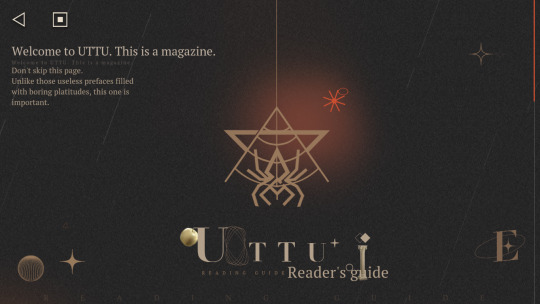
Welcome to UTTU. This is a magazine.
Don’t skip this page. Unlike those useless prefaces filled with boring platitudes, this one is important.
1. Don't doubt the truth of UTTU. We only tell true stories that happened to real arcanists.
2. You only need one copy of UTTU. After you make the seasonal subscription, the copy will update itself on 15th every month.
3. Whenever the copy updates itself, please place it below a cupboard or the firewood in a fireplace, but do not leave any fire or light. Then step back to 8.8 feet away and wait for 10-15 minutes. It is normal to hear the sounds of sewing and crawling during the update.
4. Don't be confused about the interviews of the artworks. Please note that anything can be an artwork: they can be alive, or dead. Whoever has a story to tell can be deemed an artwork.
5. You might smell a fine aroma from the pages while reading an interview. This is normal.
6. Do not be shocked by live photographs, and do not let any of them come in contact with dark coffee or matches.
8. Keep UTTU away from fire. This is an arcanum magazine and is definitely not fireproof.
9. Although it's not fireproof, UTTU is waterproof, but please do not soak it in water for too long. If you do so by mistake, please prepare enough insect repellent.
10. Don't ask where article 7 is. (lmao)
11. If you see any ads about nightmare recycle on the attached pages, do not call the number on it or make any attempt to catch those monsters. If your children report strange goings-on to you, comfort them with one extra milk candy before bedtime.
12. Try to enjoy reading UTTU.
The way one could get the magazine is buying a seasonal subscription, and upon receiving it you’d have to take care of it regularly since it is delicate. When updating, you put it in a place where you’d most commonly find spiders. That way, these arcane weavers can multiply and add to the tapestry. Additionally, this magazine seems to be a live and interactive type of media, which does explain the “live photographs” and the spiders.
Magazine Contents
Now, what are the contents of the UTTU Magazine?
First, we look at our Role Atlas. Yes, the Role Atlas is involved in this too.
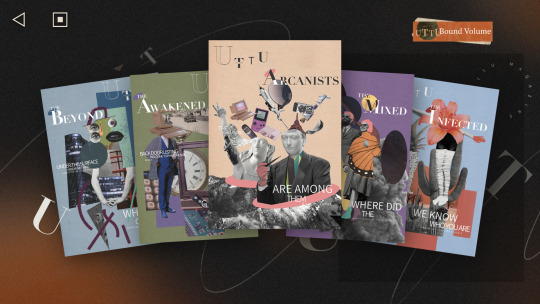
There are categories of our roster that classify them by what they are: Beyond, awakened, arcanist, mixed, and infected. Now, what are each of these?
Beyond: an Arcanist with unexplainable origins not found within Arcanum (Ex: Voyager and aliEn T are aliens born of supernatural causes rather than arcanum. Jessica is a hybrid species of a deer woman (a spirit in Native American myth) and a changeling (a supernatural creature in European folklore) )
Awakened: an Arcanist who was once an object and has been given sentience one way or another (Ex: Sputnik was a regular space probe as the real Sputnik 1 who gained sentience when entering orbit).
Arcanist: A general term for those who are born with a different physiology that makes them able to sense and use arcanum, this is not limited only to human arcanists. (Ex: Door was born of arcanum on Earth and was always sentient thus is not a Beyond nor Awakened arcanist)
Mixed: People who both have the genetics or blood of a Human and an Arcanist. (Ex: Pavia and Satsuki were implied to be born of a human and an arcanist)
Infected: Currently unknown, no arcanists within this category.
They also have a “Bound Volume”, which serves as a gallery collection of arcanists that Vertin has and has not met. Those she (and we) haven't met will be obscured.
The “Artwork”
Artworks in this game are basically the arcanists that UTTU chooses to write about. As long as there is one to tell, they will conduct an interview and report on it. For each artwork they contain: Exhibition details, Item Collection, and Story/Interview.
First, the cover. Made by my friend and fellow lore chat dweller Rabies En., this is what can be made out of what each part of the exhibition details mean:
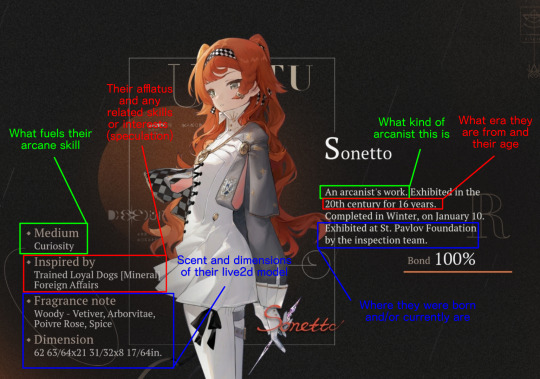
And of course, the “Completion” date is their birthday.
When it comes to describing their inspiration, it tends to be left on a vague note and left for speculation. While concluding that the first half is the title of the arcanist’s afflatus, the second half has left most people confused. My speculation is that this latter half is something that is related to their job, hobby, skill, or interest.
For example, Balloon Party’s inspiration is quite straightforward: “Remains of a Rock Formation [Mineral] Bones Balloon.” It directly showcases her afflatus and what she is inspired by, which also goes hand in hand as to what her arcane skill is. Meanwhile, Sonetto’s is more vague and unique: “Trained Loyal Dogs [Mineral] Foreign Affairs.” These reflect her upbringing and main interest respectively. With this theory, I concluded that the afflatus and inspiration boost one’s arcanist’s medium, which in turn helps fuel their arcane skill.
Second, the items. All arcanists have a section that lists personal items that closely pertain to their character, usually, these things would be visible on their person. The author analyzes them and relates them to their story and character. And depending on the item, they are priced by clear drops.
Additionally, if a character has a garment that isn't their I2 (e.g. event garments), they will have a special section for a new set of items. (Ex. Sonetto's Parade Anthem garment isn't exactly her I2 outfit, thus she has another set of items that relate to the uniform.)
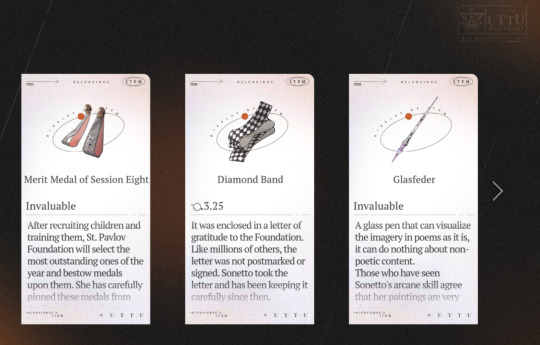
Lastly, the Story and Interview; Each and every arcanist is interviewed by Pandora Wilson, another fellow arcanist and one whose face is obscured to the world other than a pair of lips.
The first story is a retelling of their background and upbringing, the second is a story about their daily life or lifestyle, and the third is a transcripted segment of their interview. The interview segments usually starts with Pandora greeting and/or asking a few questions towards the interviewee, but occasionally they also include the end of these interviews.
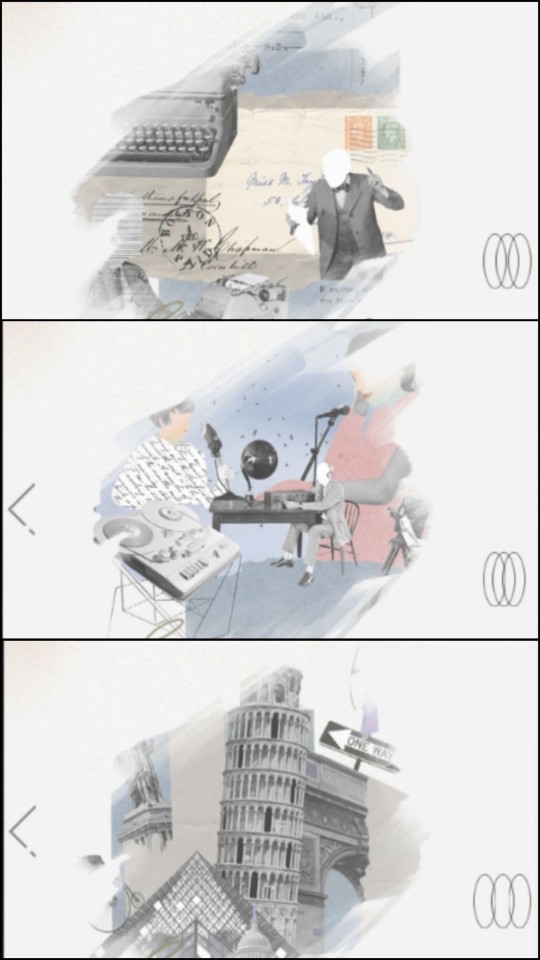
They highlight parts that make the interviewee unique; It exhibits their distinction, their personality, and most importantly, their overall character and the life they lead. These help us learn about the arcanists in a more deeper level the more we bond with them, as well as learning about the world they live in considering how all of them come from different times.
Now, our magazine analysis ends here. Feel free to ask questions and Part 2 is linked below!
Part 2: The Flash Gathering
#reverse 1999#uttu#lore analysis#say thank you to rabies en for the exhibition guide#heavy sonetto mentioning cause we love her
148 notes
·
View notes
